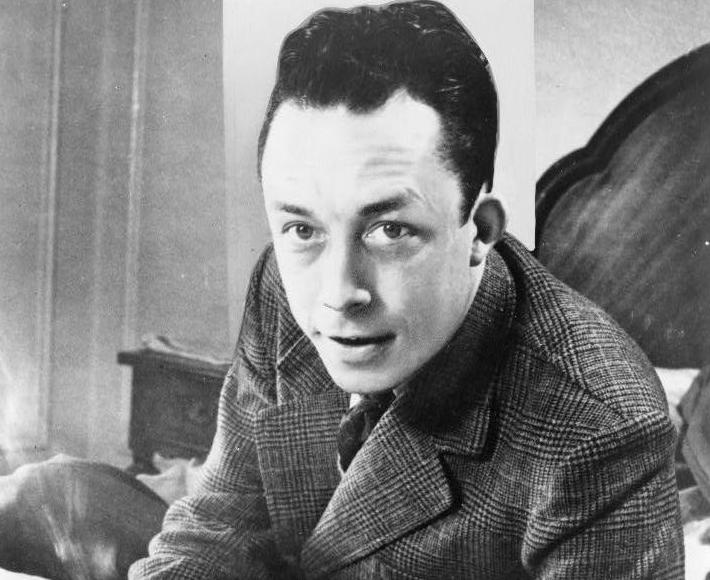
What Young Global Leaders Can Learn from Albert Camus:
Leadership isn’t just Sacrifice—it’s also about Sustaining Passion and Hope
Leadership isn’t about sainthood—but striving despite flaws and evolving
Paris — Albert Camus (1913–1960), the French-Algerian philosopher, novelist, and Nobel laureate, remains a towering figure in 20th-century thought. Known for his existentialist and absurdist writings—like The Stranger, The Myth of Sisyphus, and The Plague—Camus grappled with life’s deepest questions: the search for meaning in a seemingly indifferent universe, the ethics of rebellion, and the resilience required to face suffering.
For Young Global Leaders (YGLs)—a cohort of innovative thinkers and change-makers under the banner of both the World Economic Forum and J. Luce Foundation—Camus offers timeless lessons. His philosophy, rooted in courage, compassion, and clarity, provides a roadmap for navigating today’s complex, often absurd global landscape.
Embracing the Absurd Without Despair
Camus famously articulated the absurd: the tension between humanity’s desire for meaning and the universe’s silence. In The Myth of Sisyphus, he imagines Sisyphus, condemned to roll a boulder uphill only for it to tumble back down, as a symbol of this struggle. Yet Camus rejects nihilism, urging us to live defiantly in the absurd’s shadow.
For YGLs tackling climate crises, geopolitical instability, or technological disruption, this mindset is invaluable. The world’s problems may feel Sisyphean—endless and unyielding—but Camus teaches that meaning emerges not from solving everything but from persistent effort. Luce Leaders can inspire action not by promising utopia, but by embracing reality’s messiness and forging ahead with purpose.
Rebellion with Integrity
In The Rebel, Camus explores chttp://rebellion as a constructive act—not blind destruction, but a refusal to accept injustice coupled with a commitment to human dignity. He critiqued both oppressive systems and the excesses of revolutionaries, advocating a balanced defiance.
YGLs, often at the forefront of social and economic transformation, can draw from this. Whether challenging corporate greed or authoritarian regimes, Camus reminds them to ground their rebellion in ethics, not ideology. A tech innovator disrupting outdated industries, for instance, must weigh profit against societal good, ensuring their rebellion builds rather than breaks communities.
Solidarity in Crisis
Camus’s novel The Plague allegorizes human resilience amid calamity. In the quarantined town of Oran, characters like Dr. Rieux fight a relentless disease not out of heroism, but out of duty to their fellow humans. Today’s leaders face metaphorical plagues—pandemics, inequality, misinformation—and Camus’ call to solidarity resonates.
YGLs can learn to prioritize collective well-being over individual gain, fostering collaboration across borders and sectors. A biotech founder developing affordable vaccines or an activist amplifying marginalized voices echoes Rieux’s quiet, steadfast compassion. Camus shows that leadership in crisis isn’t about grand gestures but consistent, unglamorous effort.
Rejecting Extremes
Camus’ life was marked by his refusal to align with dogmatic camps. During the Cold War, he criticized both Soviet authoritarianism and Western complacency, earning enemies on all sides. His fallout with Jean-Paul Sartre over communism underscored his independence—he valued truth over tribalism.
For YGLs navigating polarized debates—be it climate policy or AI ethics—this is a clarion call. Leadership demands rejecting binary thinking and seeking nuanced solutions. A policymaker crafting regulations for AI, for example, might balance innovation with accountability, avoiding the extremes of laissez-faire or overreach. Camus’ integrity offers a model for staying principled amid pressure.

Living Authentically
In The Stranger, Meursault’s detached honesty—however alienating—reflects Camus’ emphasis on authenticity. He believed in living true to one’s values, even when society demands conformity.
YGLs, often under scrutiny in high-stakes roles, face similar tests. The pressure to appease stakeholders or chase trends can erode personal conviction, but Camus urges leaders to anchor themselves in what matters.
An entrepreneur might forgo a lucrative but unethical deal, or a diplomat might speak candidly against a popular but flawed policy. Authenticity builds trust—a currency more enduring than fleeting applause.
Finding Joy in the Struggle
Camus wasn’t dour; he found beauty in life’s imperfection. A soccer player in his youth and a lover of the Mediterranean sun, he wrote, “In the depth of winter, I finally learned that within me there lay an invincible summer.”
For YGLs burned out by relentless challenges, this is a lifeline. Leadership isn’t just sacrifice—it’s also about sustaining passion and hope. A social entrepreneur might draw strength from small victories—like a community lifted by their work—mirroring Camus’ belief that joy coexists with struggle. This balance prevents cynicism, keeping leaders human and relatable.
Contextualizing Camus for Today
Born in colonial Algeria to a poor family, Camus understood marginalization firsthand. His outsider perspective fueled his empathy and skepticism of power—traits YGLs can emulate. Today’s globalized world, with its stark inequities, demands leaders who amplify the voiceless, as Camus did in his journalism on Algerian struggles. His 1957 Nobel Prize speech emphasized art’s role in truth-telling, a reminder for YGLs in creative or influential fields to wield their platforms responsibly.
Yet Camus wasn’t flawless. His ambivalence toward Algerian independence frustrated critics, and his personal life—marked by infidelity—clashed with his moral stance. These imperfections humanize him, offering YGLs a lesson in humility. Leadership isn’t about
but striving despite flaws, acknowledging missteps, and evolving.
Practical Applications: One Boulder at a Time
How might YGLs apply Camus’ wisdom? A climate activist could adopt his absurd defiance, pushing for change despite political gridlock, finding motivation in the act itself. A startup founder might channel his ethical rebellion, innovating responsibly in industries rife with exploitation. A diplomat facing a refugee crisis could embody his solidarity, prioritizing human lives over bureaucratic inertia. And all could heed his call to authenticity, leading with conviction in a world of posturing.
Camus died tragically in a 1960 car crash at 46, yet his voice endures. For Young Global Leaders, his philosophy isn’t abstract—it’s a toolkit for action. In an era of uncertainty, where AI reshapes economies, climate alters landscapes, and populism tests democracy, Camus offers clarity: meaning isn’t found; it’s made. Through rebellion, resilience, and a stubborn love for humanity, YGLs can craft a future that honors his legacy—one boulder at a time.
Rolling the Boulder: What Camus Teaches Modern Change-Makers (Feb. 22, 2025)